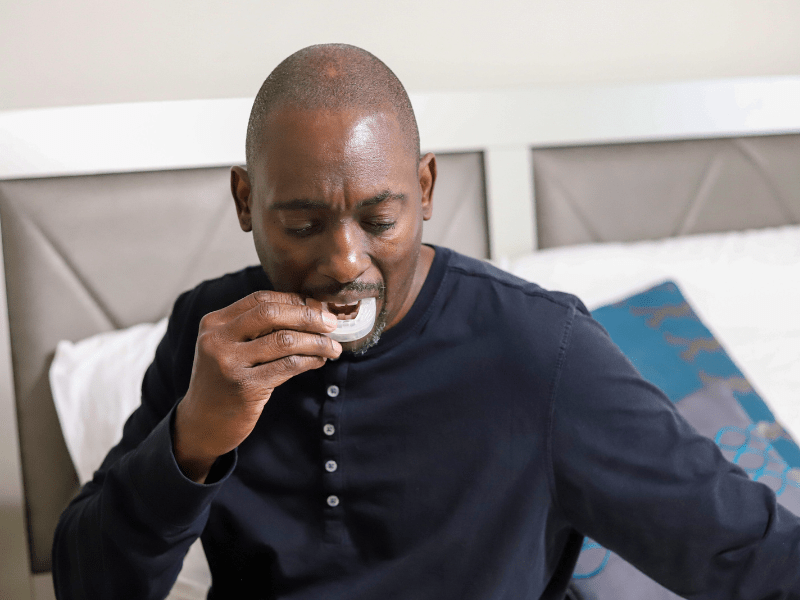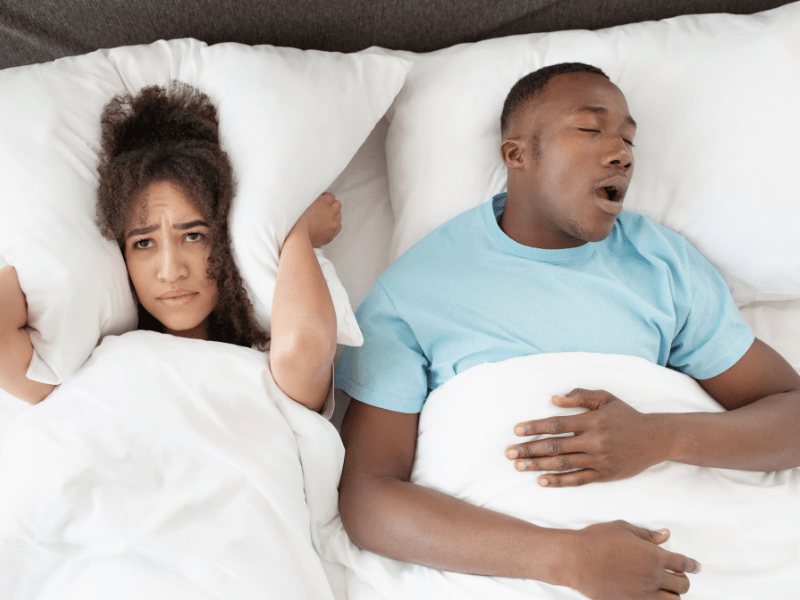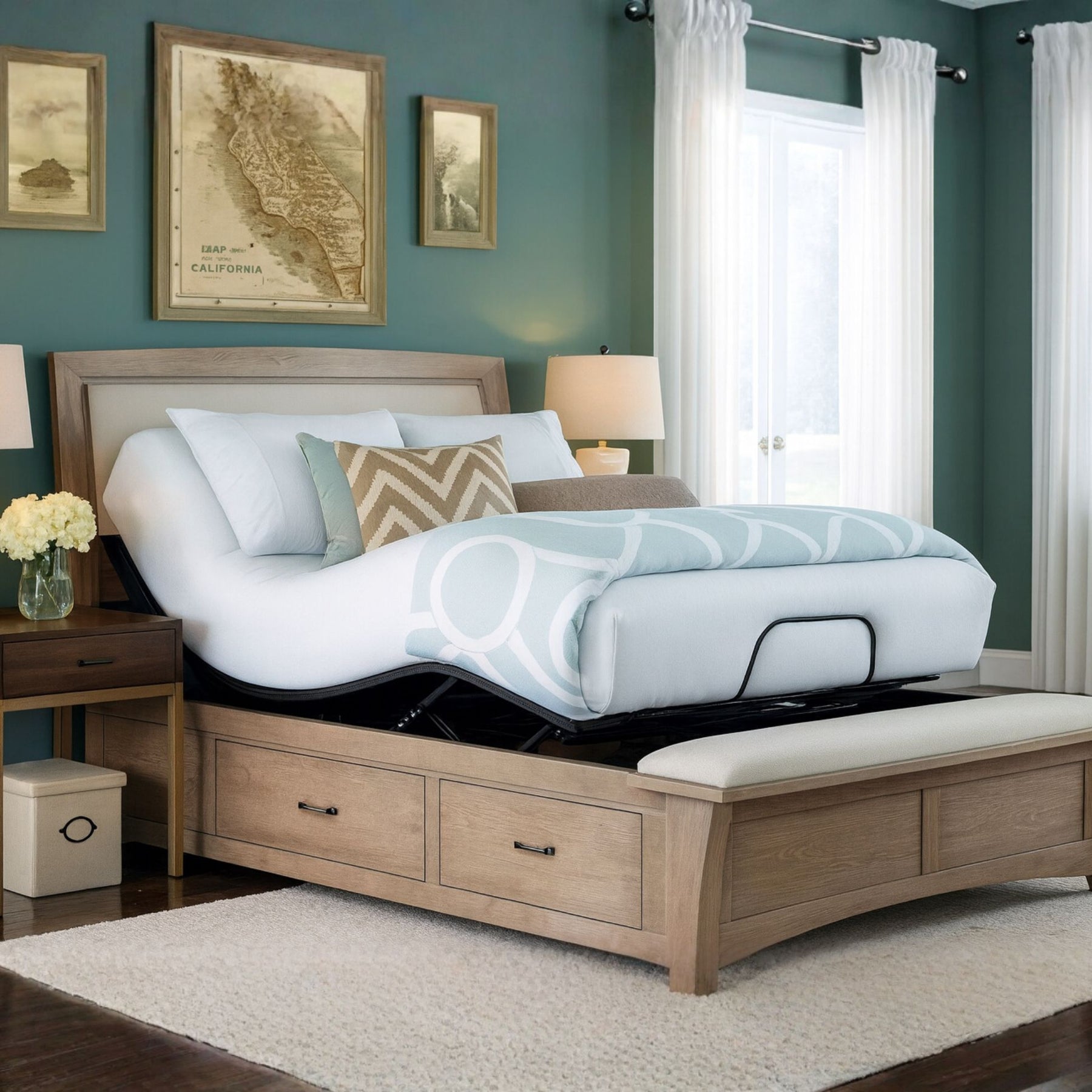Introduction
Are you struggling to differentiate between the puzzling conditions of narcolepsy and hypersomnia? These sleep disorders, often classified as 'central disorders of hypersomnolence', can cause excessive daytime sleepiness, affecting your daily life productivity.
This easy-to-understand article will take a deep dive into understanding these complex conditions, their types, symptoms, causes and how they influence one's well being.
Let's address the confusion surrounding Narcolepsy vs Hypersomnia together!
Understanding Narcolepsy
Narcolepsy, a type of central disorder of hypersomnolence, is characterized by excessive daytime sleepiness and can be further categorized into Type 1 and Type 2.
Narcolepsy Type 1
Narcolepsy Type 1 is a neurological disorder classified under central disorders of hypersomnolence. Commonly causing excessive daytime sleepiness, it profoundly impacts an individual's ability to manage daily activities effectively. Among the distinctive symptoms of this chronic sleep disorder are cataplexy—a sudden muscle weakness triggered by strong emotions—and potential disruptions in rapid eye movement (REM) sleep patterns.
Vivid dreams or hallucinations could also occur and hinder an individual's well-being significantly. Intricately tied to the nervous system, its underlying causes still pose a challenge for medical researchers but hope remains high for future therapeutics addressing Narcolepsy Type 1 more effectively.
Narcolepsy Type 2
Narcolepsy Type 2 is a subtype of narcolepsy that shares similarities with Narcolepsy Type 1, but without the presence of cataplexy. People with Narcolepsy Type 2 still experience excessive daytime sleepiness, which is the hallmark symptom of both types of narcolepsy.
They may also have episodes of sleep paralysis, hallucinations, and vivid dreams. Although it may be less severe than Narcolepsy Type 1, Narcolepsy Type 2 can still significantly impact daily life and overall quality of sleep.
It is important to remember that narcolepsy and hypersomnia are distinct conditions with different underlying causes and diagnostic criteria. So if you're experiencing excessive sleepiness during the day or other symptoms mentioned above, it's essential to consult a healthcare professional for proper evaluation and diagnosis.
Differentiating Hypersomnia
Differentiating Hypersomnia involves understanding the various types, including idiopathic hypersomnia, Kleine-Levin Syndrome, and hypersomnia due to medical disorders or substances.
Idiopathic Hypersomnia
Idiopathic hypersomnia is a type of sleep disorder that shares similarities with narcolepsy, but it lacks the characteristic sleep-onset rapid eye movement (REM) that narcolepsy often involves. People with idiopathic hypersomnia experience recurrent daytime sleepiness and have prolonged sleep patterns, even after getting a good night's rest. It can be incredibly debilitating, making it difficult to stay awake and alert during the day.
Unlike narcolepsy, which is often accompanied by symptoms like cataplexy (sudden loss of muscle tone), sleep paralysis, and hallucinations, idiopathic hypersomnia primarily manifests as excessive daytime sleepiness. Although the cause of this condition remains unknown (hence "idiopathic"), research suggests that abnormalities in certain neurotransmitters within the brain may contribute to its development.
Managing idiopathic hypersomnia usually involves lifestyle changes such as maintaining a consistent bedtime routine, practicing good sleep hygiene habits, and avoiding substances or medications that can further exacerbate drowsiness.
Kleine-Levin Syndrome
Kleine-Levin Syndrome is a rare sleep disorder that falls under the category of hypersomnia. It is characterized by recurring episodes of excessive sleepiness, usually lasting for days or even weeks at a time. During these episodes, individuals may sleep for up to 20 hours a day and still feel groggy and disoriented when awake. They often experience an increased appetite, hypersexuality, irritability, and confusion.
The cause of Kleine-Levin Syndrome remains unknown, but it is believed to be related to abnormalities in the hypothalamus - the part of the brain that controls sleep and appetite regulation. This syndrome primarily affects adolescents and young adults, with symptoms typically starting between the ages of 10 and 25.
Unlike narcolepsy which involves sudden periods of uncontrollable daytime sleepiness (known as "sleep attacks"), individuals with Kleine-Levin Syndrome do not experience cataplexy (loss of muscle control), sleep paralysis, or hallucinations during their hypersomnia episodes. However, they may sometimes have vivid dreams or nightmares during their prolonged periods of sleep.
Hypersomnia Due to a Medical Disorder
Hypersomnia due to a medical disorder is another type of hypersomnia that can cause excessive daytime sleepiness. Unlike idiopathic hypersomnia, which has no specific underlying cause, this particular form of hypersomnia is directly linked to a medical condition.
There are several medical disorders that can contribute to the development of hypersomnia, such as neurological conditions like multiple sclerosis or Parkinson's disease, metabolic disorders like obesity or diabetes, and even certain autoimmune diseases.
When these medical conditions affect the brain's ability to regulate sleep-wake cycles, it can result in chronic fatigue and an overwhelming need for sleep during the day. This makes it important for individuals with these medical issues to seek proper treatment and manage their symptoms effectively in order to improve their quality of life and overall well-being.
Hypersomnia Due to a Medication or Substance
Hypersomnia due to medication or substance is a specific type of hypersomnia that occurs as a result of taking certain medications or substances. These can include sedatives, tranquilizers, antihistamines, and even alcohol. When ingested, these substances can cause excessive daytime sleepiness and prolonged sleep patterns.
Unlike other types of hypersomnia or narcolepsy, this particular form of hypersomnia is directly linked to the use of medications or substances. It's important to note that not everyone who takes these medications will experience hypersomnia as a side effect. However, for those who do, it can be disruptive to daily life and productivity.
If you suspect that your excessive sleepiness may be due to the medication you are taking, it's crucial to discuss this with your healthcare provider. They can then evaluate whether adjusting the dosage or switching medications might help alleviate this unwanted side effect.
Hypersomnia Associated With a Psychiatric Disorder
Hypersomnia associated with a psychiatric disorder is another type of hypersomnia that can cause excessive daytime sleepiness. In this case, the excessive sleepiness is directly related to a psychiatric condition, such as depression or anxiety. People with this type of hypersomnia may find themselves needing to take frequent naps throughout the day and still feeling excessively tired.
It's important to note that while the symptoms may be similar, treating the underlying psychiatric disorder is key in managing this specific type of hypersomnia. Seeking professional help from a healthcare provider experienced in both sleep disorders and mental health can provide guidance on proper treatment options for individuals dealing with hypersomnia associated with a psychiatric disorder.
Conclusion
In conclusion, while narcolepsy and hypersomnia are both central disorders of hypersomnolence with symptoms of excessive daytime sleepiness, they have distinct differences. Narcolepsy is characterized by additional symptoms such as cataplexy, sleep paralysis, and hallucinations, whereas hypersomnia refers to recurrent daytime sleepiness without these accompanying features.
Understanding these differences is crucial for proper diagnosis and treatment of individuals experiencing chronic sleep disorders.
FAQs
1. What is the difference between narcolepsy and hypersomnia?
Narcolepsy is a neurological disorder characterized by excessive daytime sleepiness, sudden bouts of sleepiness or loss of muscle control (cataplexy), hallucinations, and disrupted nighttime sleep patterns. Hypersomnia, on the other hand, refers to excessive daytime sleepiness without any other associated symptoms.
2. How can I tell if I have narcolepsy or hypersomnia?
It is best to consult with a healthcare professional for an accurate diagnosis. They will conduct a thorough evaluation which may include a review of your medical history, physical examination, and possibly lab tests or overnight sleep studies to differentiate between narcolepsy and hypersomnia.
3. What causes narcolepsy and hypersomnia?
The exact cause of both conditions is not fully understood yet. However, in the case of narcolepsy, it is believed to be related to abnormalities in certain brain chemicals that regulate wakefulness and REM sleep. Hypersomnia might be caused by factors like underlying medical conditions (e.g., depression or obesity), certain medications, genetic predisposition, or disruptions in the central nervous system pathways responsible for controlling wakefulness.
4. Can narcolepsy or hypersomnia be treated?
Yes! While there isn't currently a cure for either condition, various treatment options are available to manage symptoms effectively. Medications such as stimulants can help improve alertness in individuals with narcolepsy or hypersomnia. Lifestyle changes like maintaining regular sleep schedules, avoiding caffeine/alcohol before bedtime and practicing good sleep hygiene are also important measures that can make a positive impact on managing these disorders.
Experience comfort you control with an iSense adjustable-firmness mattress. Every iSense mattress features 20 comfort settings you can use to adjust your level of comfort every night. No more asking yourself what is a plush mattress - we've got all the answers for you. Your support needs change as your health changes, so your mattress should, too. From soft to firm, enjoy consistent pressure relief at every setting—only with iSense.



















